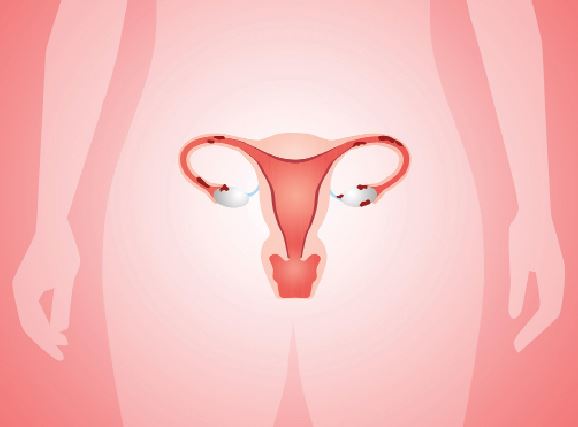Endometriosis advice from Dr Philippa Kaye

Dr Philippa Kaye looks at the hard task of identifying and diagnosing endometriosis, a condition that can occur in women from puberty onwards
Endometriosis is not always easy to diagnose explains family doctor Philippa Kaye
Hannah’s pelvic pain was virtually constant. Some days were better than others but there was always pain. She had heavy and painful periods and her pain had started to interfere with her life. She was missing work and social events and her sex life had dwindled, as sex really worsened the pain. However, she and her partner wanted a baby and so she came to see me for help.
We carried out various investigations including an ultrasound but they didn’t show anything. I suspected she may have a condition known as endometriosis, but treatments to help with the pain, like the contraceptive pill, were not appropriate as she was trying to conceive. The diagnosis was eventually discovered with laparoscopy, key hole surgery, in which the surgeons saw patches of scar tissue. A blockage in her tube has now been operated on and she has been referred for fertility treatment. My fingers are crossed for her and her partner!
Who does it affect?
Endometriosis is a difficult condition to diagnose but tends to affect women of reproductive age. There are deposits of tissue similar to that of the womb lining, but outside the womb. Commonly these deposits are found around the pelvis but can occur in other parts of the body. This tissue responds to the hormones of the menstrual cycle and bleeds when you have your period, but bleeds into the body, sometimes causing the formation of cysts called endometriomas, generally resulting in scar tissue.
What are the symptoms of endometriosis?
Symptoms include very painful periods, pain during opening your bowels or passing urine, especially on your period, pain in the pelvis during sex, constipation, and nausea. The pain can be so bad that, just like Hannah, it prevents you from living your normal life. Endometriosis can also prevent pregnancy.
What test can be done for endometriosis?
The reason endometriosis is difficult to diagnose is unfortunately there is not a specific blood test or scan for endometriosis, though the abdomen and pelvis might be tender during an examination. There are no blood test changes, and the patches of tissue cannot be seen on ultrasound, which isn’t great at detecting scar tissue either. But if there is an endometrioma, this can be seen. The gold standard for diagnosing endometriosis is with a laparoscopy – key hole surgery where the surgeon looks at the organs in the tummy and pelvis using a camera inserted into the abdomen to see the tissue deposits. Interestingly there isn’t a correlation between what is seen during laporoscopy and symptoms you may have. For example a surgeon may see lots of deposits and you can be relatively symptom free, but someone with severe pain may have few changes seen in the abdomen and pelvis.
Dr Philippa Kaye explains treatments for endometriosis
Treatments include pain relief with paracetamol or ibuprofen. Turning off the menstrual cycle can also help with pain, so contraceptives such as the combined oral contraceptive pill can help. Other contraceptive options are the intrauterine system, which is a coil that releases hormones.
Surgery can also be used to burn away or remove the patches of endometriosis, or in extreme cases to remove the womb itself, if it has deposits of endometriosis on it, and potentially the ovaries and tubes as well if they have deposits of endometriosis on them – a bilateral salpingo-oophorectomy and hysterectomy.
Endometriosis and fertility
Endometriosis is more commonly found in women who are having difficulty conceiving. This may be related to the tubes being blocked by scar tissue, so the egg can’t get into the womb and the sperm can’t reach the egg. Surgery to remove the endometriosis deposits and scar tissue may improve your chances of getting pregnant, but unfortunately it is not a guarantee. If you have endometriosis and are trying to conceive, if you have not got pregnant after 6 months then see your doctor, irrespective of age.
Advice given in this article and on the My Weekly website and magazines is not meant to replace personalised medical advice from your doctor. If you have any health concerns please see your doctor.
Article written on April 16, 2020; article reviewed and updated on March 4, 2024
Each week we’ll ask Dr Philippa Kaye to talk about a prominent health issue, so look out for more articles in our health and wellbeing section in coming weeks.






